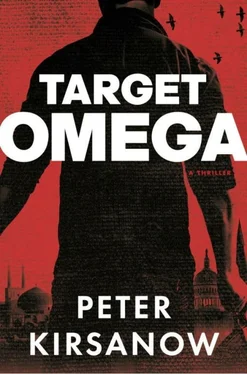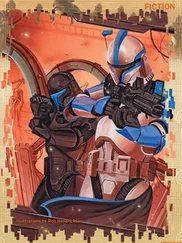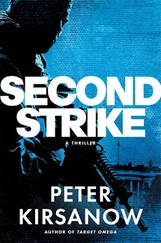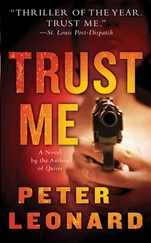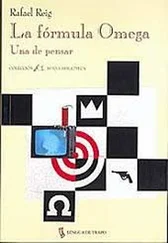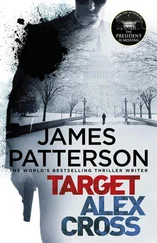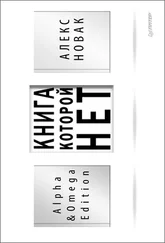“Spoken with all of the flourish of bad poetry.”
“You fool no one with that cynical façade, Dmitri. Especially me. If I can get out of here, I will go to Central or South America. Maybe, after a time, to South Korea. I will disappear. I will, as you say, atone — as much as anyone can atone for something like this.”
The two men stood silently for several moments smoking their cigars and gazing at the barren landscape beyond the security fence. Chernin was momentarily tempted by the thought of disappearing somewhere in South America. He could buy a villa on the ocean, read, and sail. He would drink vodka, eat well, maybe find a woman. Above all, it would be warm; he would be warm. And then, one day, a soulless young assassin from Moscow, or perhaps Saint Petersburg, would put a bullet in the back of his skull while he was sitting in a local cantina. The North Koreans might not find Park. But the Russians would surely find Chernin. It’s what they did. It’s what they’d always done.
He turned to Park, a note of fatalism in his voice. “I will contact Mansur. If he is available, we will meet with him at his home this evening. You can discuss your plans with him. But you must be careful. There are eyes and ears everywhere.”
“Thank you. But what about you, Dmitri? What will you do?”
“You are a young man. You have most of your life still ahead and reason to seek something better. I, on the other hand, have lived most of my allotted time already. I have little to look forward to other than a measure of personal comfort and safety.” Chernin dropped his cigar, barely smoked, to the ground. “So, I will live on the Black Sea and, like a good Russian, contemplate all of my regrets,” he said matter-of-factly. “And then, after considering each one in turn, I will die.”
WASHINGTON, D.C.
JULY 16 10:10 A.M. EDT
Garin parked his car in the underground garage beneath the National Labor Relations Board building, on Fourteenth and L. Before getting out of the vehicle he put on a ball cap and replaced his sunglasses with black-framed spectacles. He’d already donned the contacts and nose and lip molds. Garin emerged from the parking garage carrying a shoe box — size, gift-wrapped package. He turned left onto L, made another left onto Fourteenth Street, passed the NLRB entrance, and went into the Hamilton Crowne Plaza, where he checked in. Having done that, he returned to the National Labor Relations Board building, where he presented himself to the Homeland Security guards at the security desk in the atrium.
“I’m here to see Member Halliday,” Garin announced.
A female guard pushed a pen across the desk and pointed to the registry. “Sign here. ID, please.”
Garin handed the Virginia license bearing the name Mark Webster to the woman, who placed it in a small metal box. “You can pick this up when you return,” she said.
Garin signed the registry while a male guard picked up the phone, pressed four keys, waited a few seconds, and said, “Mr. Webster to see Member Halliday.” The guard listened for a few seconds and then looked at Garin. “What’s the purpose of your visit?”
“I’m here to deliver a gift from an old friend of Mr. Halliday. Looks like it’s supposed to be a surprise.”
The guard repeated the information to the person on the other end of the line and then nodded. “His assistant will be down momentarily,” the guard informed Garin.
A few minutes later the elevator doors at the far end of the atrium opened and a stern-looking blond woman in her fifties walked briskly toward the desk. “You have something for Member Halliday?”
Garin held up the package. “The sender says I’m supposed to deliver it personally. I was told it’s some type of surprise or gag gift from a college friend of his by the name of McLain. He insists that I bring it to Member Halliday and then call Mr. McLain to confirm delivery.” Garin waved a piece of scrap paper with the fictional telephone number of the fictional sender.
“Member Halliday isn’t in right now,” the woman said, a fact of which Garin was already aware, having called each of the board members’ offices just a short time ago. “I can make sure he receives the package.”
Garin affected the pose of a diligent deliveryman. “Ma’am, Mr. McLain insists I deliver it and then call him, you know? He gave me a pretty good tip to make sure. Look, you can walk me up to his office so I can put it on his desk. Then I can call McLain and tell him ‘mission accomplished.’ Okay?”
Halliday’s assistant tilted her head to one side and shrugged. “Sure. Follow me.”
“Sir, step over here, please.” The male guard held up a metal-detector wand and motioned for Garin to step forward. Garin complied, raising his arms perpendicular to his sides as the guard waved the wand over Garin, the gym bag, and the gift box. The guard then opened the gym bag and gave the contents a cursory inspection before motioning for Garin to proceed.
Garin followed the assistant to the bank of elevators, where she pressed the button for the top floor, which housed the suites of the five members of the NLRB. She guided him to Member Halliday’s suite to the far right of the elevator bank. They entered the wood-paneled reception area and walked into Halliday’s expansive office with a view of Thomas Circle. Garin placed the gift box on the desk, then pulled out his cell phone, dialed a number, and said, “Mr. McLain, this is Mark from SpeedEx delivery. Just want to confirm that the package has been delivered to Mr. Halliday as you instructed.”
Garin disconnected and turned to the assistant. “Ma’am, thanks so much. I’ll get out of your way now. I can find my way back downstairs.” The assistant smiled and returned to her desk in the reception area. Garin walked out of the suite, the door closing automatically behind him. The eleventh floor was quiet. No one was in the hallways as Garin strode to the door next to the elevator bank. He glanced around briefly before opening the door and ascending the stairwell one flight to the rooftop of the building.
Garin took off the black-framed spectacles and put on his sunglasses as he emerged into the bright sunshine. The rooftop was flat, enclosed by a chest-high brick wall. He walked to the southern side of the building and stooped under the metal overhang of an air-conditioning unit. He leaned forward against the brick wall and looked across the alleyway that separated the NLRB building from the Hamilton Crowne Plaza.
The sidewalk in front of the hotel had the usual level of pedestrian traffic for late morning. There was no unusual activity on either Fourteenth or K Streets, or Franklin Square on the opposite side of the hotel. Garin estimated it would be no more than another five minutes before that changed.
He used the time to remove the contacts and facial molds and put on a dark blue cap and shirt retrieved from the gym bag. To anyone viewing him from a distance, he would resemble a member of a SWAT team. Garin then scanned the surrounding buildings for the location most favorable for a sniper covering the exits to the hotel, quickly concluding that the two best spots were the PNC Bank across from Franklin Square and the roof of the Tower Building on the northwest corner of Fourteenth and K. He would keep an eye on those locations.
The first sign of activity occurred a few minutes later. That didn’t take long, thought Garin. Several dark-colored vans appeared along both Fourteenth and K Streets. Two parked across the street from the hotel entrance along the northwest curb of K Street. Another parked along the southwest side of the hotel. The last one that Garin could see parked directly below him in the alley separating the NLRB building and the hotel.
Читать дальше
